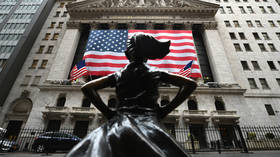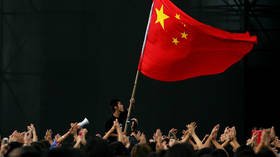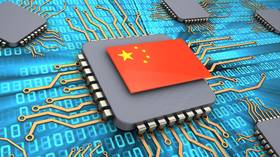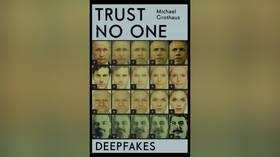Was China’s WTO accession 20 years ago the start of the West’s suicide?
The US thought the move would speed up Beijing’s transition into a market economy and democracy. It hasn’t gone quite to plan.
China became a member of the World Trade Organization (WTO) 20 years ago this month. It was an ascension supported by the United States, and hailed by Beijing as a landmark moment in its reform, opening up and integrating with the world. The then US president Bill Clinton hailed it as “an historic step toward continued prosperity in America, reform in China, and peace in the world … it will open new doors of trade for America and new hope for change in China.”
Yet two decades on, the feelings could not be more different.
China’s entry into the institution is now openly derided by American politicians as one of their country’s defining strategic failures. They argue that allowing Beijing, with its massive and inexpensive labor force, to participate in globally set tariffs and trade rules dealt a hammer blow to Western jobs and manufacturing. These all headed East and transformed China into today’s global juggernaut and industrial powerhouse.
It is little wonder that America’s trade policy has subsequently lurched inwards. Free trade is now deemed bad, American jobs must come first, and policies such as banning the import of all products made in Xinjiang and blacklisting scores of Chinese companies rule the day.
The belief that China has comprehensively beaten America on trade has become a mainstream consensus in the West, hence the BBC’s economics editor Faisal Islam running a piece this week entitled, “How the West invited China to eat its lunch,” which explores in analytical depth what has happened since that fateful day. While the BBC is intentionally biased against China, Islam is a talented broadcaster who knows his stuff – but is his claim true?
What is often missed in this story is that it starts long before 2001, and goes back to the fact that, for decades, China constituted a “gaping hole” in the global economy. It was the world’s most populous nation, but the revolutionary fabric of Maoism had initiated a closed, state-dominated system, and China was estranged from and in a state of conflict with the West.
In Mao’s later years, the United States eyed an opportunity in engaging with Beijing as a counterweight to the Soviet Union, commencing with Nixon’s famous visit in 1972. This laid the framework for “China’s opening up” after Mao’s death in 1976, spearheaded by his successor, Deng Xiaoping.
In encouraging this process, Washington grew to believe that China was on an inevitable trajectory towards political liberalization, and that capitalism and business was an intrinsic part of this transformation. It was assumed, ideologically, that wealth would create the conditions that demanded freedom, as had happened in the authoritarian right-wing Asian states the US nurtured during the Cold War, such as South Korea, Taiwan and Singapore.
Pouring money into China was seen as both a political and economic bonanza for the West, the opening up of its “socialist market economy” offered not only cheap manufacturing, but a domestic market with huge potential.
Through this process, China became the keystone of modern globalization and the new post-Cold War economic set-up, which turned into neoliberal, free-market fundamentalism in the 1980s. The undercutting of manufacturing and industry in the West as a deliberate policy; it wasn’t China “stealing” it. Margaret Thatcher and Ronald Reagan were the two instinctive drivers of this move, believing that protectionist policies, soaring inflation and trade unions were economically disastrous and that the virtues of the free market would bring prosperity to all.
Ironically, communist China became the biggest beneficiary of that legacy, and it was never conceived by the proponents of this process that companies would grow to see China as a more important market than their own. The year 2001 was merely a stepping stone, not the cause of the problem.
But does that mean China “ate the West’s lunch?”. Since the Trump administration came to office, Beijing’s ascendency has been frequently depicted as a zero-sum game that China won at the expense of the country doing business with it, but this is misleading. The incorporation of China into the global economy brought billions to Western businesses that they could have not obtained elsewhere. It is claimed that China’s “industrial subsidies” are what undercut the Western market, when in reality it was Western companies selling in China to export back to the West.
In addition, China’s entry opened up the world’s largest export market, created new sources for foreign direct investment, kept prices down and inflation low, enabled the Western consumer boom to thrive, and indirectly spurred the growth of Chinese tourists and students.
To say that China vacuumed money out of the West is a misrendering of history. China simply assumed the natural place in the global economy it traditionally had, but had been excluded from through decades of isolation, instability, poverty and conflict.
Now there are some parties in the West who seek to turn back the clock, who want to bring jobs back home, and somehow restore their competitive edge of old, but this is sweeping against the laws of economics itself and market realities. As capitalism does, it gravitates towards the greatest market, the biggest demand and the most efficient supply; it has nothing to do with the “CCP cheating and stealing,” as it is so ignorantly and frequently asserted.
As a result, it is no wonder that 20 years on from when China joined the WTO, it is Beijing that has become the biggest champion of multilateral free trade and openness, while the US is sinking into protectionism, bad faith smear tactics and anti-competitive practices. A market of 1.4 billion, which has not even reached its height in terms of consumption potential, will always hold more clout than a market of 320 million people.
Ironically, the United States is crying foul against the world trading order and global neoliberal system that it established. Did China really eat the West’s lunch? No it didn’t, but it certainly dined at the table that the US and its allies set for it.
The statements, views and opinions expressed in this column are solely those of the author and do not necessarily represent those of RT.


















